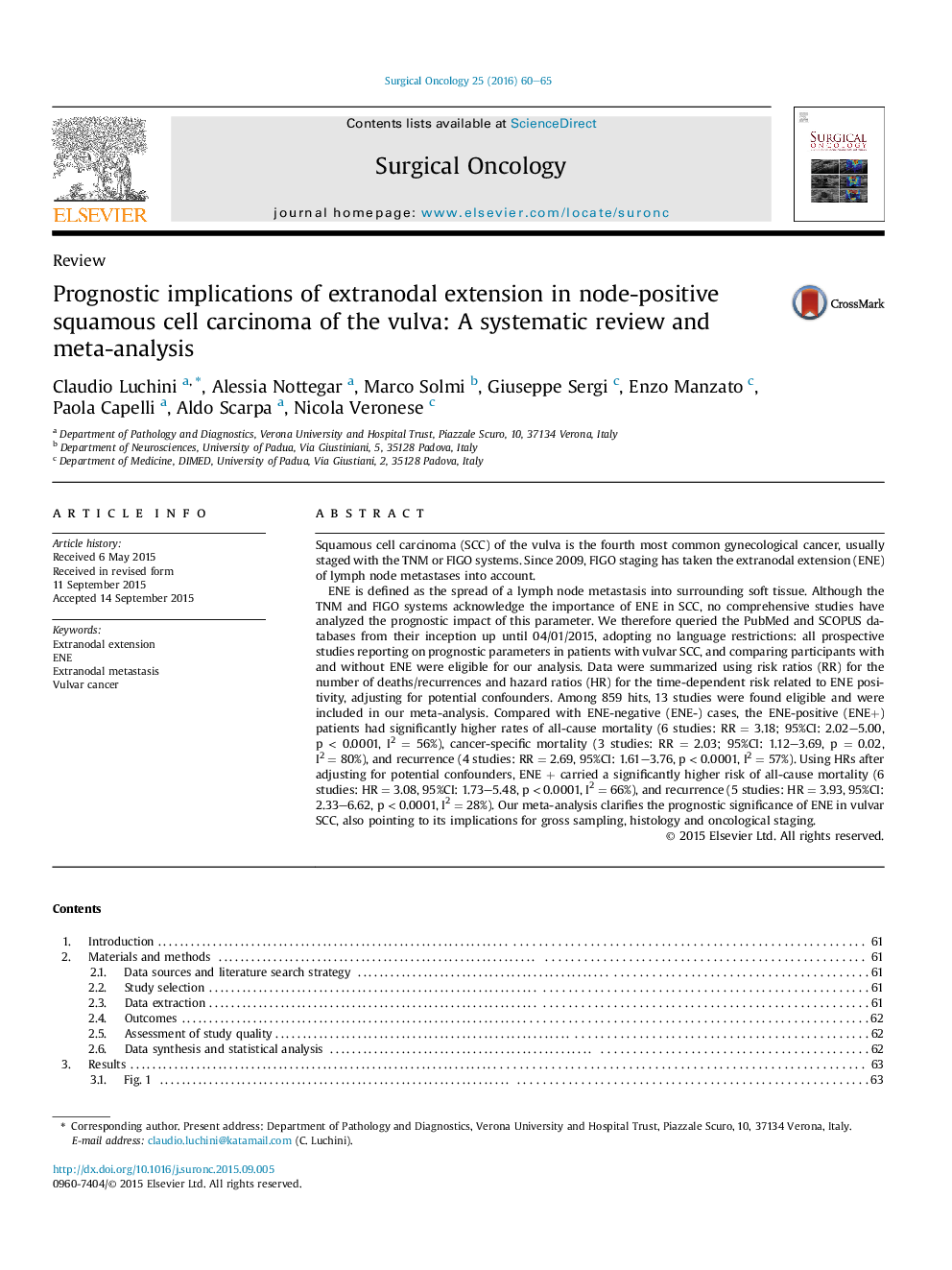| کد مقاله | کد نشریه | سال انتشار | مقاله انگلیسی | نسخه تمام متن |
|---|---|---|---|---|
| 3997702 | 1259168 | 2016 | 6 صفحه PDF | دانلود رایگان |
• Extra-nodal extension (ENE) is the spread of a lymph node metastasis into surrounding soft tissue.
• Standard staging systems for squamous vulvar cancer consider ENE as an important parameter.
• We aim to weight its prognostic importance with a meta-analysis.
• ENE influences fundamental prognostic parameters, like overall-survival and risk of recurrence.
• We also highlight the implications of knowing this important histologic feature.
Squamous cell carcinoma (SCC) of the vulva is the fourth most common gynecological cancer, usually staged with the TNM or FIGO systems. Since 2009, FIGO staging has taken the extranodal extension (ENE) of lymph node metastases into account.ENE is defined as the spread of a lymph node metastasis into surrounding soft tissue. Although the TNM and FIGO systems acknowledge the importance of ENE in SCC, no comprehensive studies have analyzed the prognostic impact of this parameter. We therefore queried the PubMed and SCOPUS databases from their inception up until 04/01/2015, adopting no language restrictions: all prospective studies reporting on prognostic parameters in patients with vulvar SCC, and comparing participants with and without ENE were eligible for our analysis. Data were summarized using risk ratios (RR) for the number of deaths/recurrences and hazard ratios (HR) for the time-dependent risk related to ENE positivity, adjusting for potential confounders. Among 859 hits, 13 studies were found eligible and were included in our meta-analysis. Compared with ENE-negative (ENE-) cases, the ENE-positive (ENE+) patients had significantly higher rates of all-cause mortality (6 studies: RR = 3.18; 95%CI: 2.02–5.00, p < 0.0001, I2 = 56%), cancer-specific mortality (3 studies: RR = 2.03; 95%CI: 1.12–3.69, p = 0.02, I2 = 80%), and recurrence (4 studies: RR = 2.69, 95%CI: 1.61–3.76, p < 0.0001, I2 = 57%). Using HRs after adjusting for potential confounders, ENE + carried a significantly higher risk of all-cause mortality (6 studies: HR = 3.08, 95%CI: 1.73–5.48, p < 0.0001, I2 = 66%), and recurrence (5 studies: HR = 3.93, 95%CI: 2.33–6.62, p < 0.0001, I2 = 28%). Our meta-analysis clarifies the prognostic significance of ENE in vulvar SCC, also pointing to its implications for gross sampling, histology and oncological staging.
Journal: Surgical Oncology - Volume 25, Issue 1, March 2016, Pages 60–65
